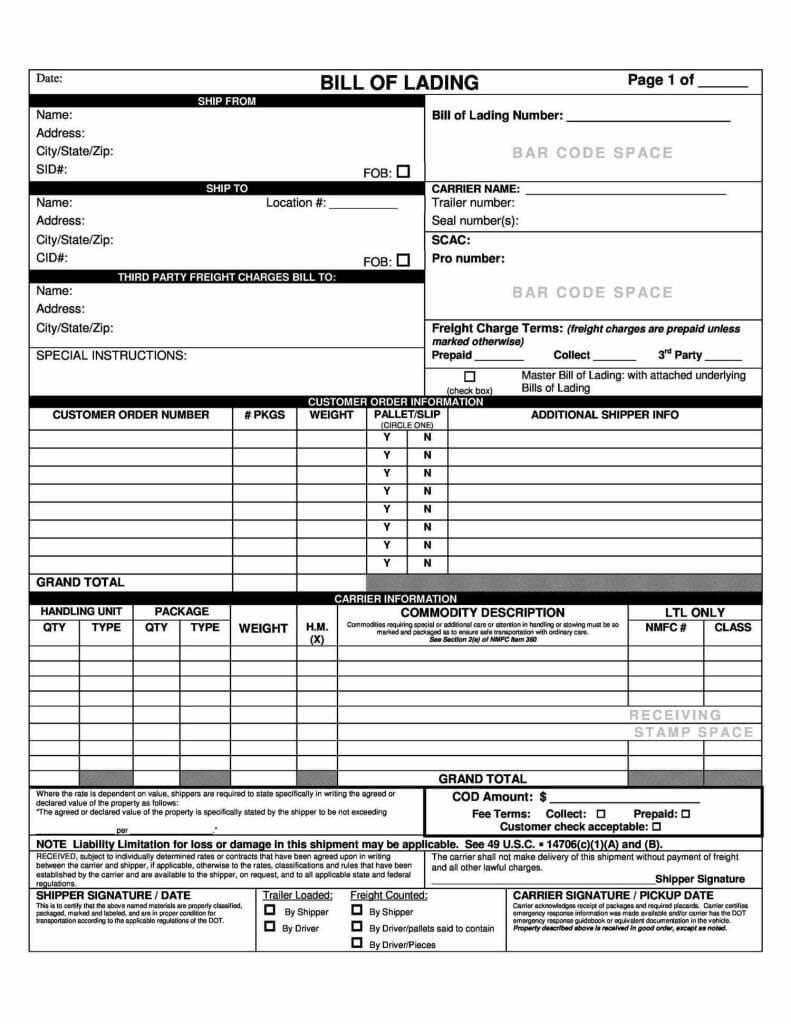
Table of Contents
What is a Bill Of Lading in Trucking
The BOL or Bill of Lading is a legally binding document provided by a carrier to a shipper that details the type, quantity, and destination of the goods being carried. It acts as a contract of carriage, a receipt for shipped products, and a document of title.
Defining the Bill of Lading in Freight Transportation
Used in various types of freight shipping, Bill of Lading (BOL) serves multiple purposes from being a receipt of goods to a contract between a freight carrier and shipper. In the trucking industry, the BOL is indispensable, ensuring that goods are correctly transported from point A to point B.
Components of a BOL
Typically, a Bill of Lading includes the following components:
- Names and addresses: The BOL lists the shipper, receiver, and the bill-to party.
- Purchase orders or special account numbers: Used for order tracking, these are provided by the shipper for reference.
- Date: The date of the shipment is crucial for record-keeping.
- Description of items: A detailed description of the goods being transported, including the material, quantity, dimensions, weight, and any hazard classifications.
- Packaging type: This could include crates, pallets, cartons, etc.
- Freight class: This helps carriers determine shipping charges.
- Special instructions: These may include any necessary handling instructions for the carrier.
Types of BOL
There are several types of BOL, each serving a specific function:
Straight BOL: Used when the goods have been paid for and are being shipped to the customer.
Order BOL: Used when the goods are being shipped prior to payment.
Bearer BOL: The possession of this document entitles the holder to the goods listed.
Clean BOL: Issued when the goods have been received in “apparent good order” without damage or shortages.
The Importance of BOL in Trucking
In the trucking industry, the BOL is important for several reasons:
Proof of Contract
The BOL serves as a contract between the shipper and the carrier. It details the obligations of each party.
Receipt of Goods
It is an acknowledgment that the carrier has received the goods from the shipper in an acceptable condition.
Document of Title
It gives the carrier the right to transport the goods and outlines the terms of the delivery.
BOL ensures the smooth transport of goods, provides legal protection to shippers and carriers, and is an important part of record-keeping in the logistics sector.
External Links
Shipmate Fulfillment has a very good YouTube video on this topic.
49 CFR § 375.505 – Must I write up a bill of lading? – Article by Cornell Law School – click here.
Listen to The Article Here
BOL Example Trucking


